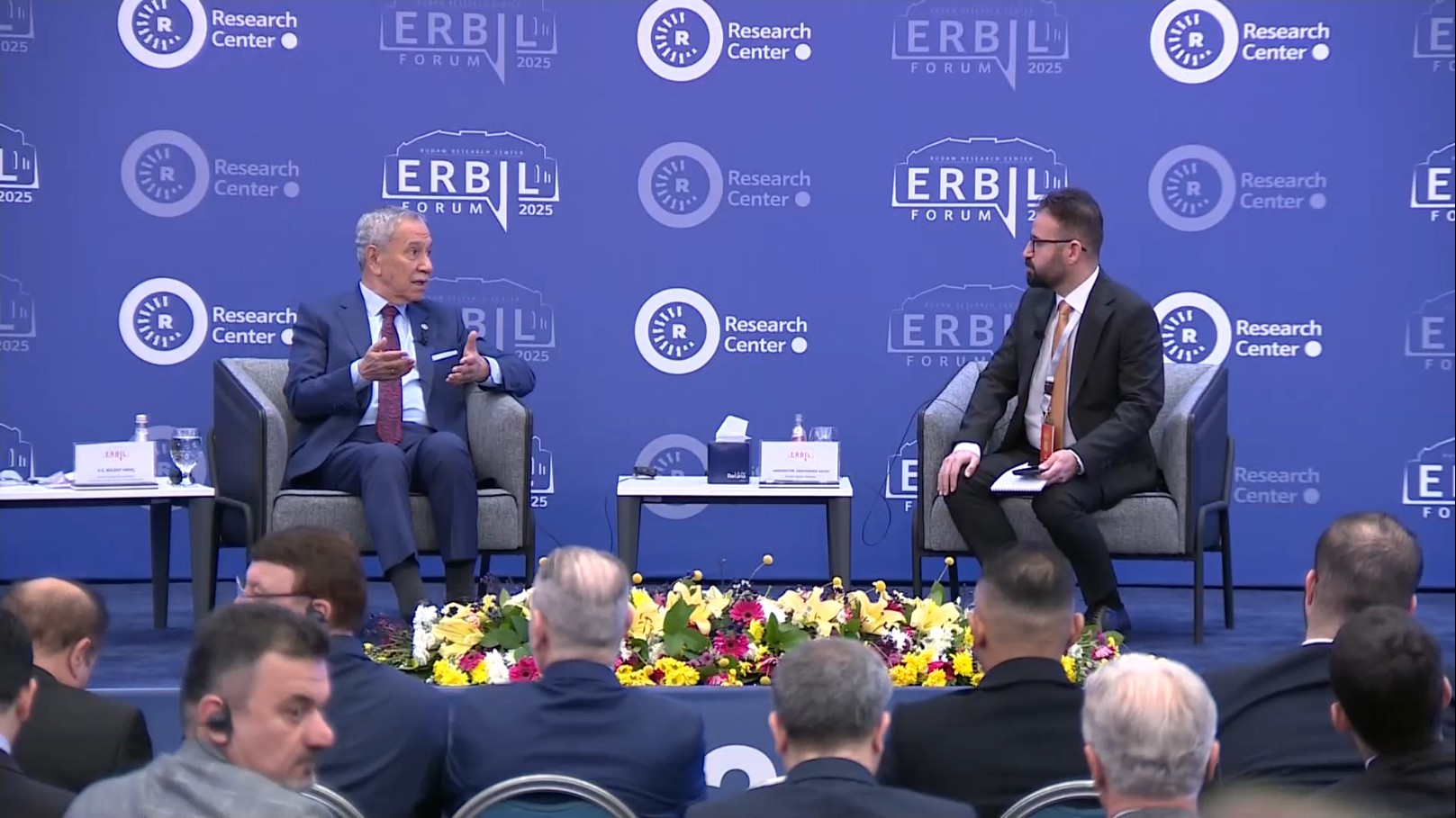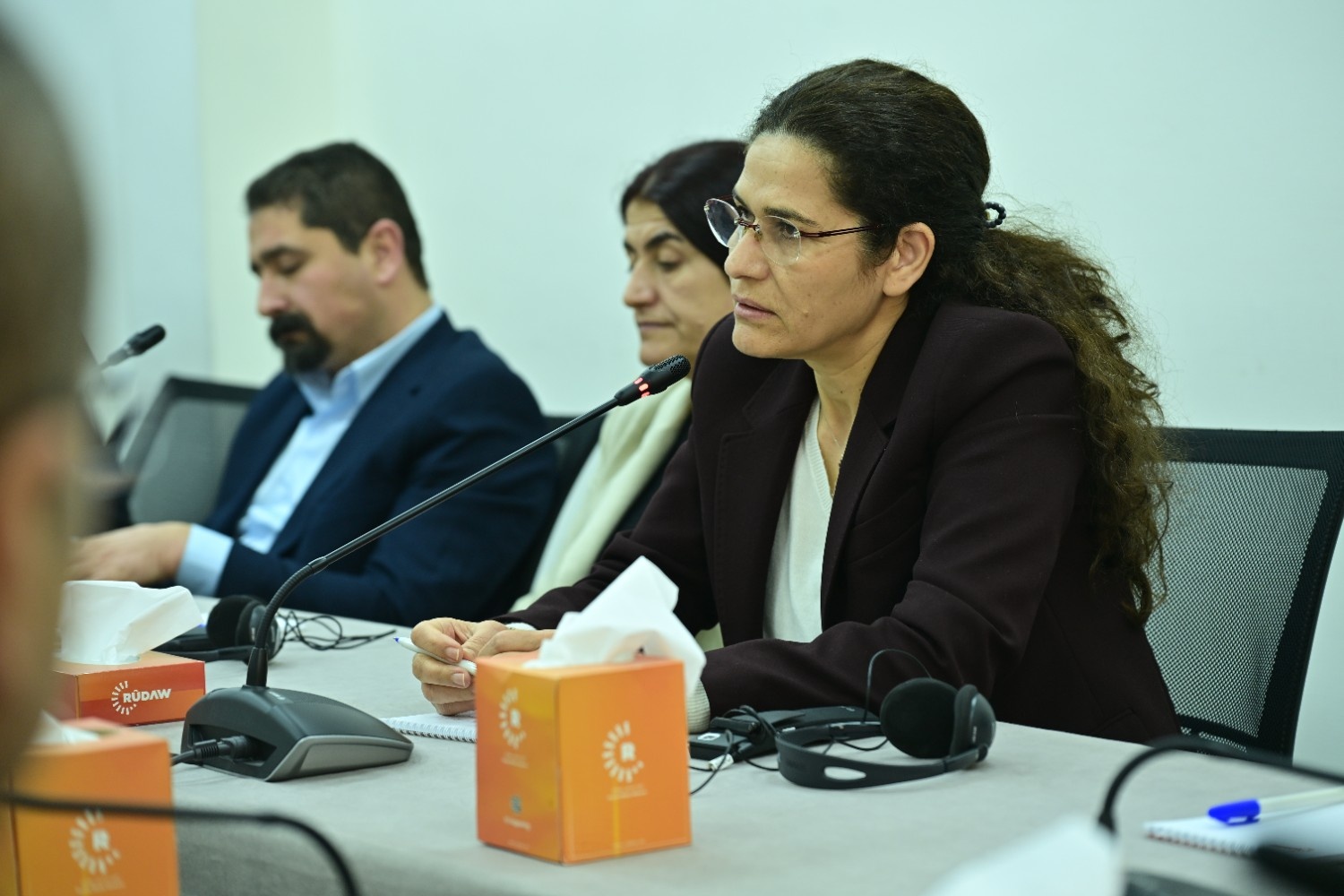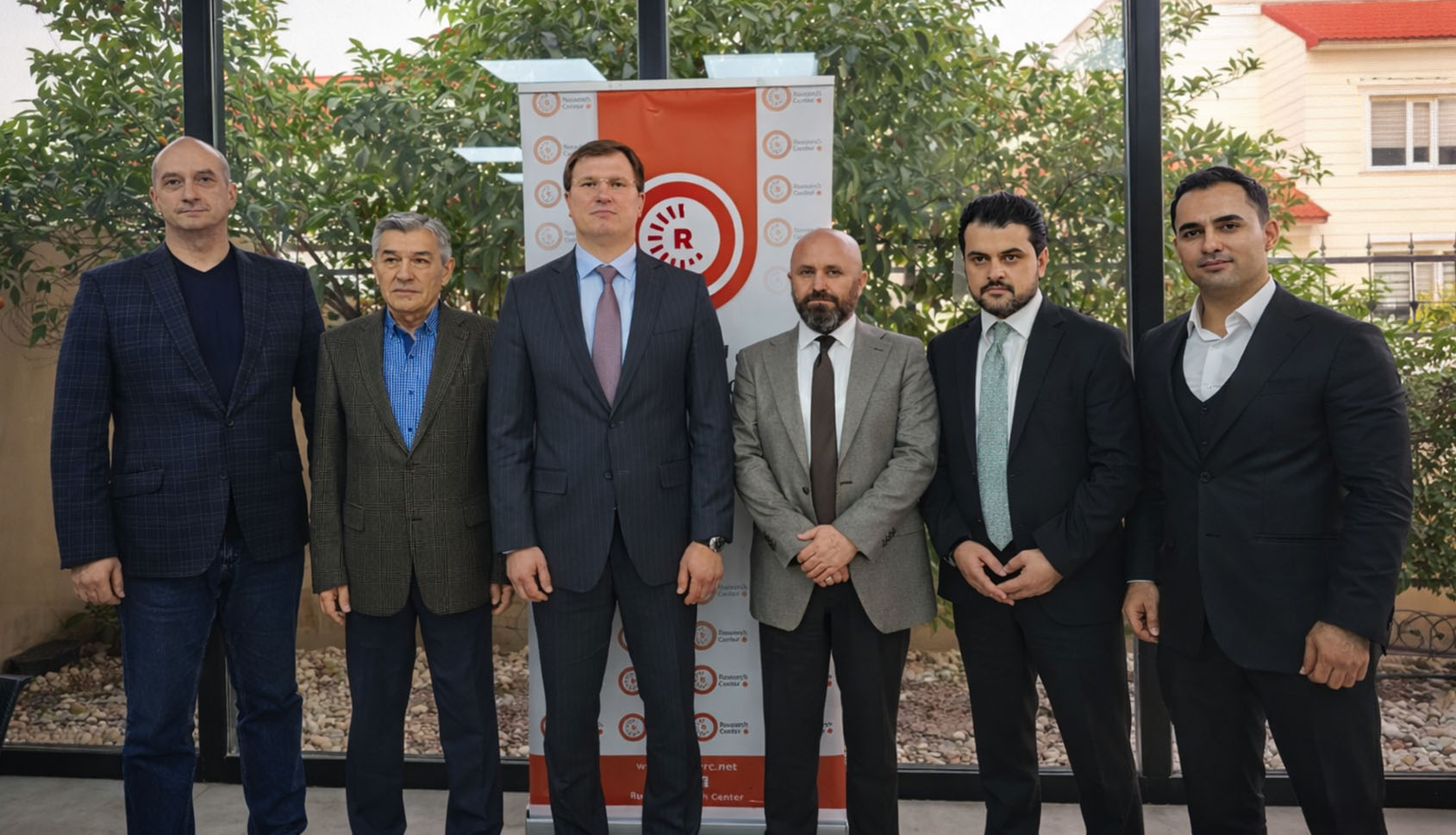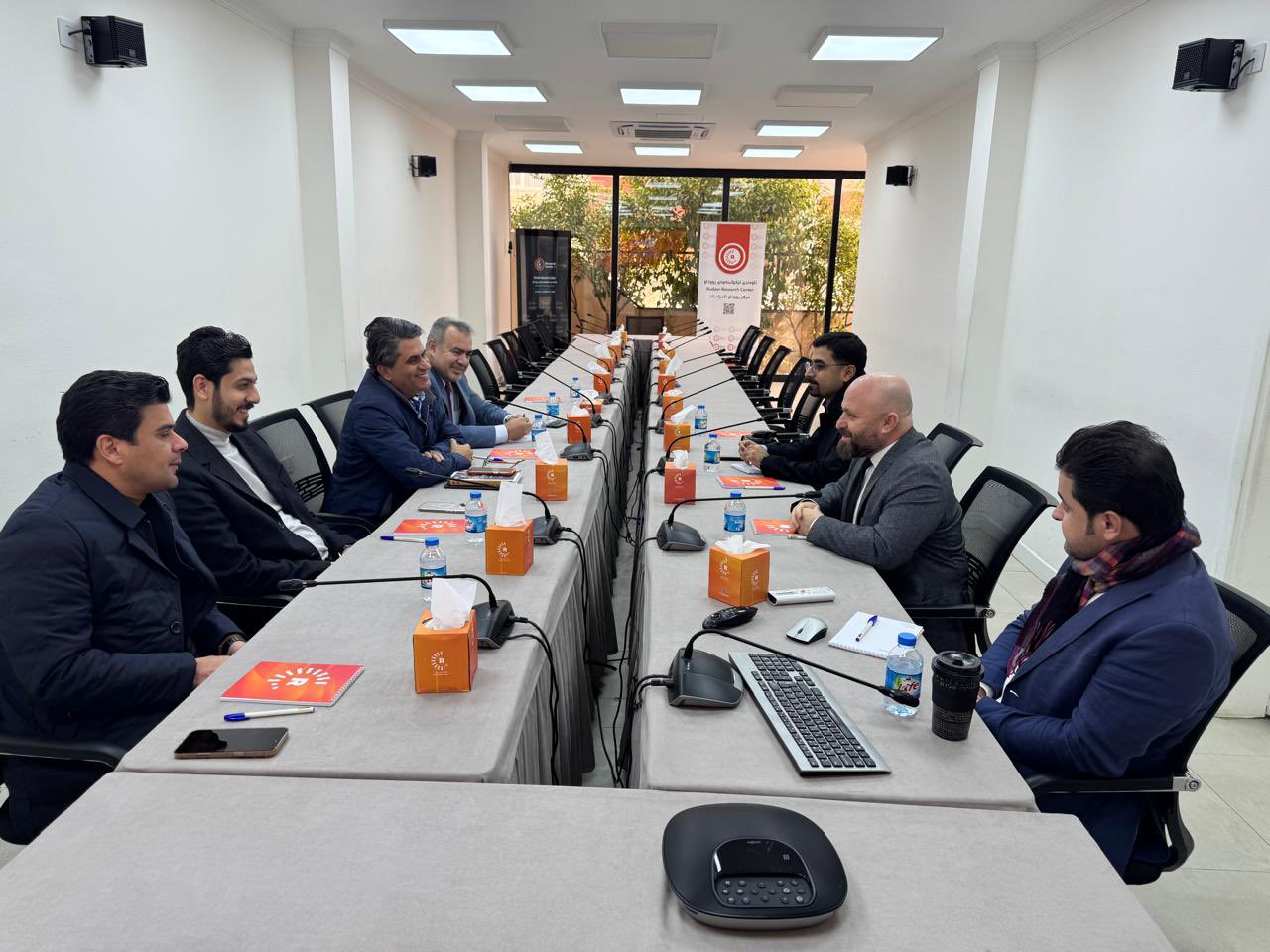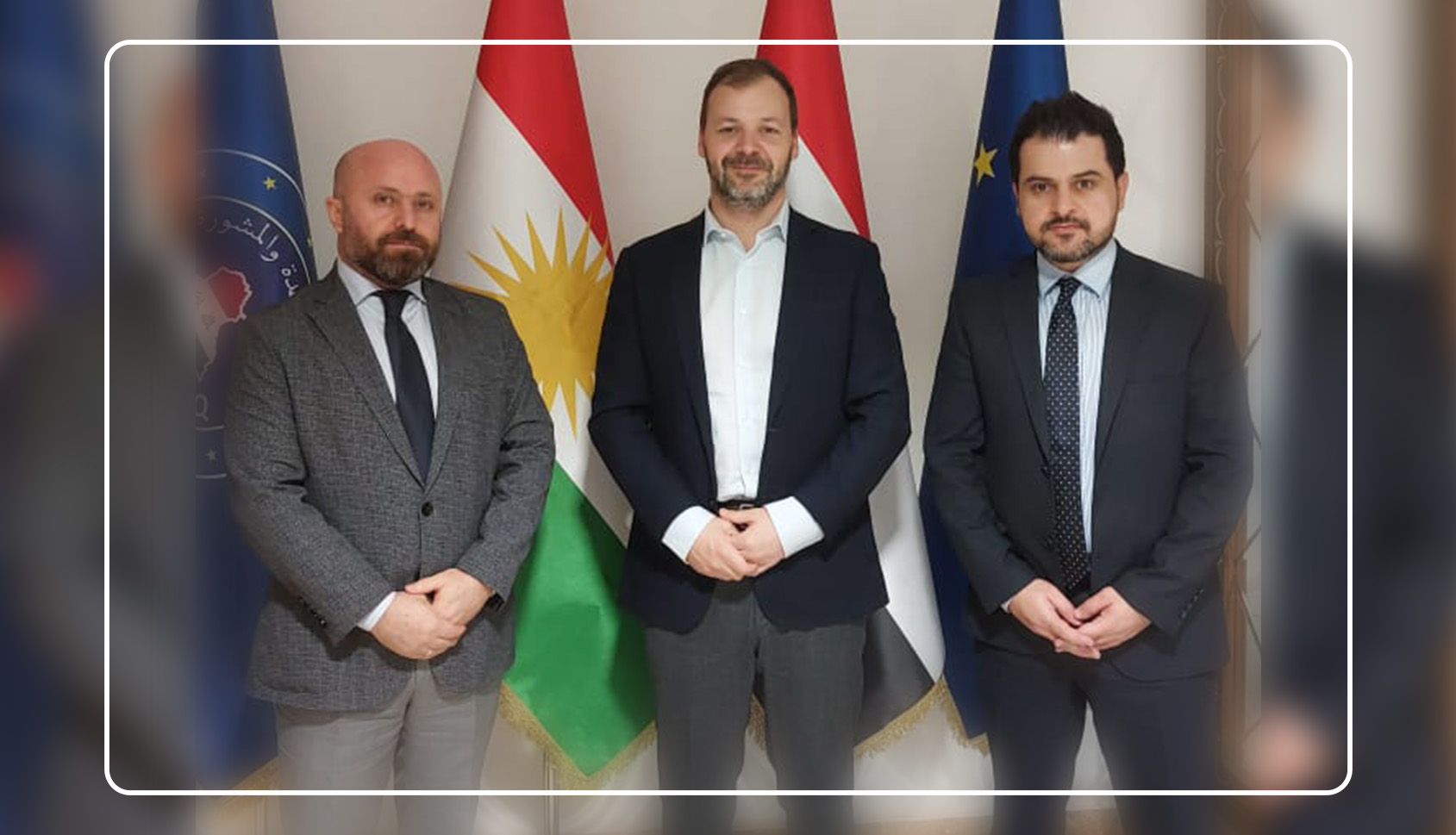Interview 06: Türkiye's Domestic Policy and Regional Strategy Transformation; Bülent Arınç's Perspective, Former Speaker of Parliament
11-04-2025
Mohammed Saleh: You have been active in politics for 50 years, and have been very involved since the time of Necmettin Erbakan. Was Abdullah Öcalan's message shocking or expected? What is your assessment of the content of the message?
Bülent Arınç: Since yesterday, especially after the announcement of the message, it has received attention not only in Turkey and the region, but has become a matter of interest for the entire world. I have been your colleague in this field for several years. In addition to my official positions as Speaker of Parliament, Deputy Prime Minister, and President of the Supreme Council for Combating Terrorism, I know the region very well and I know and care deeply for my Kurdish brothers. This organization (PKK) has been established for about 40 years. If we start from the Eruh attack in 1984, it has been over 40 years now. Since then, grief, pain, suffering, hardship, and one disaster after another have followed. After my tenure as Speaker of Parliament, I was appointed Deputy Prime Minister and official government spokesperson, and I found myself involved in the resolution process. The process began with the activities of the National Intelligence Organization (MIT), and later, when the meetings and works of the National Security Council were presented. Unfortunately, the outcome was not good.
Mohammed Saleh: Why wasn't it successful?
Bülent Arınç: Allow me to clarify. I'll be brief: the government acted with good intentions in everything it did, but the organization (PKK) betrayed those efforts. None of the promises it made were ever fulfilled. Regarding yesterday’s call, something came to mind. After the first Imralı meeting in March 2013, Sirri Süreyya Önder and Pervin Buldan read Abdullah Öcalan’s first message in Diyarbakır Square, calling for the laying down of arms and the withdrawal of fighters from Turkey. As a responsible person at that time, I monitored the developments daily, hoping they would show commitment and follow through. But after a while, only a few elderly people and some teenagers withdrew. Later, due to the ceasefire, this issue was forgotten. During the ceasefire period, the PKK secretly and openly armed itself and waited for the right moment. Unfortunately, in 2015, the process ended. It's now difficult to speak about this matter. What happened yesterday is in the past. Today is a new day, and we need to discuss new things.
Suddenly, we heard something unexpected from a prominent political figure, Mr. Bahçeli. He said something very strange. Honestly, I was amazed and shocked, and his party’s faction was also taken aback by his statement. This is the same Mr. Bahçeli who constantly said in his speeches that we should do this, take this action, adopt this position, and reinstall the gallows platform. His sudden position was truly unexpected, and we were shocked. We had always remained hopeful, waiting to see what his next steps would be, so we closely monitored the situation.
Mohammed Saleh: Among the issues you mentioned, did Öcalan’s message align with Bahçeli’s invitation?
Bülent Arınç:
I believe Mr. Bahçeli is simply issuing a call, which is a duty, and the organization (PKK) needs to fulfill the conditions and take it into consideration. Öcalan's expected message is a response to Bahçeli's invitation and an acceptance of it. Before this panel, I reviewed Öcalan's call again. He is the founder of this organization, which he brought into existence from the beginning, and he is the first responsible party for all armed operations. Since 1999, he has been detained in the high-security İmralı Island prison. It was expected that he would issue such a call. In part of his message, he states that what was previously demanded is now outdated, if a democratic society emerges, which has indeed emerged, and these issues and others have been addressed. These issues should be resolved within the republican framework through democratic means. What is your duty, as I have established it, is to hold the organization's (PKK) congress, dissolve yourselves, and lay down your weapons. This is an order, a directive, and it must be implemented and positively received. The organization (PKK) must carry it out. We are waiting. Despite individual statements from their leaders (PKK), I haven’t seen anything new from them. Influential parties and personalities also need to fulfill their responsibilities to convince them to make the right decision.
Mohammed Saleh:
In the 1990s, you mentioned that you prepared reports on the Kurdish issue during the Refah Party. You were an influential figure in the solution process. Is laying down arms enough to solve the Kurdish issue?
Bülent Arınç:
We need to look at the situation this way: if there is a terrorism issue, or let’s say there’s a swamp, and mosquitoes gather on this swamp every day—please don’t misinterpret this example—but you get annoyed by the mosquitoes. You kill four or five mosquitoes, but the swamp still remains. After killing four or five mosquitoes, 300-400 more mosquitoes gather. The problem lies in draining the swamp. I discussed this issue in my book. When I visited India, I met with the President at the time. I talked about terrorism in three words, while he discussed terrorism in 300 words and asked how they could rid themselves of the scourge of terrorism. I will present my book to you later. During the meeting, I discussed 10 factors behind the emergence of terrorism, such as not defining oneself, remaining under pressure, lack of freedom of expression, political demands, fragmentation, separatism, and the establishment of other states. I listed all the factors. First, the causes must be addressed in order to solve the terrorism problem. What we did was more about confronting terrorists. In other words, those who aim weapons and bombs at you, you eliminate them with military force. In terms of confronting terrorism, Turkey has been very successful. If you are successful in combating terrorism, terrorists will eventually be resolved. But this has been resolved within Turkey. However, outside of Turkey, the emergence of related groups and organizations affiliated with terrorist organizations that have become threats to Turkey is another matter. Therefore, if they say, “We have made a decision for Turkey, and we have nothing to do with other groups,” they can say this decision applies here as well, and it must be implemented. It’s very difficult, but we must have hope. I always say in Turkey that to tackle terrorism, we need to find appropriate social and political solutions. During my responsibilities, as the first person in many institutions, I have always emphasized the rights of culture, identity, education, and learning.
Mohammed Saleh: Will steps be taken within this framework, such as education in the mother tongue, strengthening the Kurdish position, and releasing political prisoners and PKK members?
Bülent Arınç: I hold a position of great responsibility, and I have respect for everyone. I speak the truth wherever I go. When this process was initiated and we reached the current stage, no preparations had been made for these issues up until now. Bahçeli said something, but he did not address what would come afterward. In contrast, the President stated that if the weapons are not laid down, the fight against terrorism will continue. I do not believe there have been discussions about granting these rights. During our meetings with DEM Party officials, it was clearly indicated that the first step must be taken, after which these issues will be discussed in a peaceful atmosphere. If your question is whether these things will happen, I can say that they might happen, and they might not. I can also state that, until now, there has been no clear perspective on this matter. It is too early to discuss these issues, and speaking about them at this point is futile because we must wait for the outcome of the first step. The request for implementation has been made, but it has not yet been approved.
Mohammed Saleh: President, based on the statements of Mr. Nechirvan Barzani, the President of the Kurdistan Region, and the meetings and statements of the Imralı delegation with President Barzani and Mr. Nechirvan Barzani, we understand that they have become part of this process. What are your thoughts on the active role they are playing?
Bülent Arınç:
I extend my respect to Mr. Nechirvan Barzani as well. I received his greetings and messages. His statements yesterday were extremely commendable. Regarding President Masoud Barzani, I know his work well. We had many meetings with him in Turkey, including one in November 2013, when he and his accompanying delegation, which included the beloved Shivan Perwer, visited Diyarbakir. We were together there. We also meet from time to time abroad; they are at least as dedicated as we are to this cause and continue making efforts. I hope that, after the hardships they have endured, they will find peace and tranquility in this beautiful region.
Mohammed Saleh:
How will the disarmament of the PKK impact relations between Turkey and Erbil, Ankara and Erbil, Ankara, and Iraq, as well as Turkey and Syria?
Bülent Arınç:
There are no issues in our relations with Erbil. We are grateful. We have had, and continue to have, brotherly relations with the Kurdistan Regional Government of Iraq from the past until now. We have no problems with any of them. We are certainly satisfied with both the current administration and the previous administration’s relations with Turkey. Our views on terrorism are aligned, and we share the same perspective on confronting terrorists.
Mohammed Saleh:
Mr. President, the UN Secretary-General has made a statement on this issue, as have the German Chancellor, the White House spokesperson, and others. Europe has also expressed its position. The international community is closely watching the situation. How do you think this call for disarmament will affect Turkey on a global level, its regional relations, and its strategy?
Bülent Arınç:
First of all, I respectfully welcome the positive statements, especially regarding the United Nations and some countries. However, I expect similar positive statements from other close and neighboring countries, as they are the ones that matter most. I’m not sure how effective it would be if someone from afar were to offer advice, but honestly, I’m very curious to know Iran’s position on this issue. Above all, we need to consider that Mr. Bahçeli’s statement might not have been made had there not been changes in the world and the geographical circumstances of our region. But our geography is changing. Let’s think about it as the Middle East. I do not accept the term "Middle East" from either an ideological or geographical perspective, but it has become the term we use to define our region.
We are children of the same civilization, people of the same nation, of the same faith. For centuries, we have lived as brothers despite our differences. However, external forces have sown the seeds of division among us, causing us to fight each other. Now, we must join hands again because those who have come from afar and wish to shape our region are ruthless. They may have understood that I mean Israel, which is shaping the geography. On one hand, it is attracting Muslim countries through various agreements, while on the other, it is destroying Gaza.
When Donald Trump came to power in the United States, his statements marked significant developments in Syria. I believe these developments are positive. Among them, Israel destroyed Syrian weapons and ammunition and recaptured the Golan Heights. After seeing these developments, we must organize our internal front. Turkey should unite all its ethnic and religious communities.
Second, we share a 910-kilometer border with Syria, and we also have a border with Iraq. I visited Hakkari three or four months ago, and I toured Şemdinli, Yüksekova, and other places. In Şemdinli, they took me to a unique mountain. At the top, there is a triangle—Turkey, Iraq, and Iran meet in the middle. I was both proud and happy to see how beautiful it is, and how we are a community living together in the same geography. It’s a privilege to be here in peace, and how nice it is to share these opportunities with one another. In fact, I was both happy and saddened by our past.
Now, with the new developments in Syria, after Assad, the new regime must embrace everyone and establish a democratic system. This includes all those who live there: from the Druze to the Chaldeans, Sunnis, and Alawites. A new constitution must be drafted that fosters peace for all.
Mohammed Saleh:
What about the Kurds?
Bülent Arınç: Of course, of course. The Kurds, as a key element, must be considered as a society. They must also be in a very good position in terms of political representation.
Mohammed Saleh: Can Ahmed Shara establish a comprehensive government?
Bülent Arınç: They have intentions, we believe. In our country, when someone is given responsibility, we first ask about their past. What is their background? The evidence presented by the jury gives us a clean picture of their history. But when it comes to politicians, Ahmed Shara took Damascus within two days and then introduced himself as president. He then appeared on the screens, dressed formally, and visited Turkey. When I look at his appearance and what he has done so far, my opinion changes somewhat. I also looked into his eyes and face; they don't lie. For example, your face is very bright, like a diamond. Genghis Chandar is not, but you are. When I looked at this man's background, I had many questions. We discussed it among ourselves. The man worked with al-Qaeda, was in prison, and was involved with various people. HTS is a terrorist organization for us, but we won't delve into that now. This person has come from all those circumstances to where he is now. So, it's not wrong for us to view him with suspicion. But it is remarkable that what he has done has produced positive results. We have been closely aware of our relations with Assad. We have met with Assad and his wife four times. I mentioned him in my book. Until March 2011, we were like one family. Bashar promised us that the country would become a democracy. “I grew up in western Syria, and I will hold on to these western values,” he said. Even in one of the meetings where this subject wasn’t discussed, he mentioned, 'I like the Istanbul Stock Exchange very much. If I visit Turkey, take me there.' I asked him why he liked this place so much. He replied, 'It's a very important institution. I want to establish something like this in Syria.' But in March 2011, when the events broke out, I can honestly say that Erdoğan was prime minister, and Abdullah Gül was president. They made daily phone calls advising him not to use weapons against the opposition. His father had such a background that he responded to his opponents by force. We will never forget the suffering caused by the massacre his father committed, nor will we forget the massacre of Halabja. We will not forgive any heinous crime that targets civilians.
Mohammed Saleh: You mentioned that you were like a family at that time. Did you give any advice to Assad to recognize Kurdish identity?
Bülent Arınç: May Allah be pleased with you. I did this myself. Well, how did you know this?
Mohammed Saleh: We know you, Mr. President.
Bülent Arınç:
I was discussing this issue with Mr. Erdoğan. Erdoğan said, "This man not only denies the Kurds, he doesn't see them as human beings. I constantly advise him." Once, some Kurds from Qamishli informed us about this, and at that time, we were not aware of this issue and didn’t know many other things as well. Later, I added this matter to my personal file, and during one of our meetings, I asked him, "Why do you treat the Kurds of this region differently? You even classify them as second or third-class citizens. You haven't accepted most of them as citizens. This is while the Kurds, thanks to God, have specific rights, and they are fellow citizens of this republic, and together we established this homeland." He promised me, and then he coordinated with some Kurds and worked with them. I don’t know what they worked on or in which field because it doesn’t concern me. But what matters to me is the Qamishli region and its surroundings because these are relatives of our Kurds in Mardin, Nusaybin, Kızıltepe, and other border areas. We also arrange visits between both sides. They come and stay in Turkey, and our people go and stay there. We told them to stop this discrimination; they looked at us with suspicion. But finally, he told me, "Okay, I will do this." It was good that you reminded me of this.
Mohammed Saleh:
Now that Assad is gone, concrete walls have been placed opposite the Kurdish areas. Could these concrete walls be removed and Turkey's political and economic relations with Syria be made similar to those with Erbil, allowing trade relations to begin with them?
Bülent Arınç:
By concrete walls, do you mean the closure of customs or the concrete barriers at the border gates due to security measures?
Mohammed Saleh:
It’s those concrete barriers that have been placed for security reasons.
Bülent Arınç:
During the times when our relations with Syria were good, we removed the mines from our borders. This was followed by much debate, with people asking, "Why did you remove the mines? Why don't you think about tomorrow? Don’t do this." Yes, even in the tendering process, problems arose between the companies themselves, but anyway, we removed the mines and cleaned up the area. Until now, we are still criticized in Turkey about this. Even during my time, several other works were done, and concrete walls were placed along several kilometers. When peace comes, these barriers lose their value. This current wall is not a barrier or an obstacle; it will also be removed. What's important is that permanent peace is achieved and democratic stability is established. If political stability extends over this region, many different things will happen. We need to work on this.
Muhammad Saleh: Could the relationship that Turkey has today with Erbil be the same as with Qamishlo in the future?
Bülent Arınç: This will happen too; all of it can happen.
Muhammad Saleh: Even after Öcalan's call?
Bülent Arınç: I hope so. As the poet says, hope and wishes are the bread of the poor man. We shouldn’t lose hope. Of course, after one step, another step follows. For example, if you take this step, I ask, what then? During my time when we were managing the process, they asked, 'What should those here do? Where should they go? What will be their fate?' We looked at the experiences of other countries in peace processes, like the Basque experience with ETA, and we examined various examples because they succeeded and solved their problems. We asked ourselves, by what standards can we apply this in Turkey? We tried to implement it, but our efforts remained unanswered. From now on, if a factor of trust emerges, I am sure beautiful work can be done. I have always been in favor of discussing these issues directly with the people, and I emphasized—and still emphasize—that if weapons are laid down, the process will be much stronger. Also, people have representation in parliament; my friend here, is a parliamentarian (Cengiz Çandar), and they also better fulfill their political duties. They remain under the threat and pressure of the PKK, and I am sorry on their behalf. But if the PKK dissolves itself, they, as representatives of the people, will carry out their own politics and openly discuss this issue in the parliament hall.
Muhammad Saleh: Preparations for a new constitution are underway, and I’m sure you are monitoring this as well. What kind of constitution does Turkey need? There have been many debates about this for several years. Every 10 years, Kenan Evren's constitution was amended. What is your reading on this issue?
Bülent Arınç: Three-quarters of this constitution has been amended. Only the preamble from 1982 remains. I worked on this issue before becoming the Speaker of Parliament. I was elected as a parliamentarian in 1995 and served for five consecutive terms. During the time of the Refah Party, we also drafted a new constitution. During that period, professional institutions and related organizations also prepared several drafts. We worked with experts and academics. In the sixties, especially after the 1961 coup, we had an effective constitution. After the coup in the eighties, the 1982 constitution was put into effect. It has been amended many times; the old constitution is now unrecognizable. One of the series of amendments we made was in the referendum of September 12, 2010, which involved 25 articles. I supervised it myself. We even said to our friends—I mean all our friends without distinction—that we have made so many amendments that there is no need to draft a new constitution. Later, in 2008, a legal case was filed against us to close our party. The reason for the legal case was our preparations for constitutional amendments. After the legal case was concluded, we started again and said, "Let’s draft a new constitution

